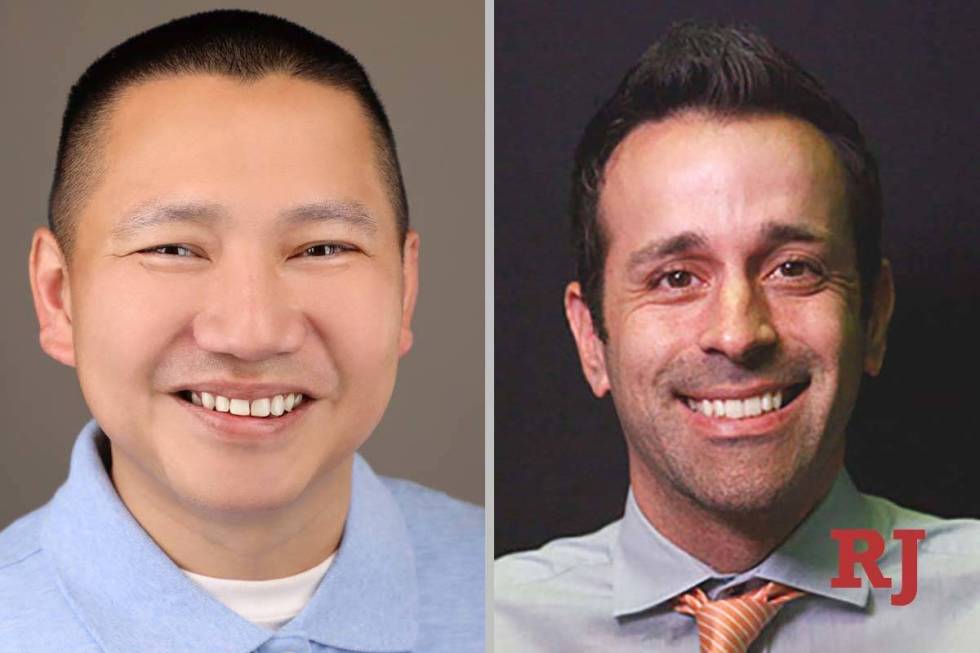2 vie for District 1 seat on Nevada State Board of Education

Two candidates — both of whom have classroom teaching experience — are running for the District 1 seat on the Nevada State Board of Education.
Tim Hughes and Angelo Casino are vying for a spot on the board during the Nov. 3 general election.
The 11-member board — with four members who are elected and seven appointed — is the governing body of the Nevada Department of Education. The District 1 seat is currently held by Robert Blakely, who isn’t running for reelection.
Casino is a teacher at Somerset Academy Lone Mountain, a public charter school, and teaches sixth-grade social studies.
“I’m in the classroom with the kids every day,” he said in mid-August. He said he sees the impact of the decisions the State Board of Education makes and wants to be a voice for students.
Hughes — a former middle school science teacher and principal — is a vice president for TNTP, a national nonprofit that focuses on addressing educational inequity. He previously ran for a seat on the State Board of Education in 2016.
“My approach is really to be a listener and really understand what are the needs are of folks in our communities,” he said.
Hughes, a third-generation Nevadan, grew up in Las Vegas and was the first in his immediate family to graduate from college.
COVID-19 response
Casino said that in a perfect world, there wouldn’t need to be budget cuts to education, but it’s a reality. “I sympathize for the people who have to make that decision. It’s never easy when cutting money out of education.”
He said his priority for budget cuts would be “whatever affects our kids the least.”
Hughes said: “One of the things about this pandemic is that it’s really shining a light on a lot of inequities in our system” and is exacerbating challenges students already face.
With school reopening plans, the safety and well-being of students and employees need to be the first priority, Hughes said. There also need to be systems in place to support students who find virtual and hybrid models challenging, he added, such as special education students, students who don’t have access to technology at home and English language learners.
Hughes said it’s also necessary to have a communications strategy that allows people to weigh on COVID-19-related school decisions.
As for education funding, he said the state can’t make cuts that will lead to scrimping on health and safety measures, or on ensuring support for new educational models during the pandemic.
The first place to look is “how do you gain efficiencies in the system?” he said, adding that alone won’t shore up the budget shortfall. There are dozens of programs funded in education, and the board could go program by program and debate the merits and effectiveness of each one, he added.
Other key issues
Casino said more teachers — and more highly-qualified teachers — need to be recruited.
And a larger investment is needed in career and technical education programs, he said, noting there are opportunities to create partnerships between high schools and industries.
Hughes said he’d also focus on improving the teacher pipeline to address a teacher shortage — a nationwide issue.
There’s a shrinking number of college graduates with an education degree and a growing student population, he said, adding it’s important to look at efforts to retain teachers and “grow our own teachers” by encouraging local residents to pursue teaching.
He said he’d also like to see expanded access to early childhood education programs, serving children from birth to age 5.
Contact Julie Wootton-Greener at jgreener@reviewjournal.com or 702-387-2921. Follow @julieswootton on Twitter.